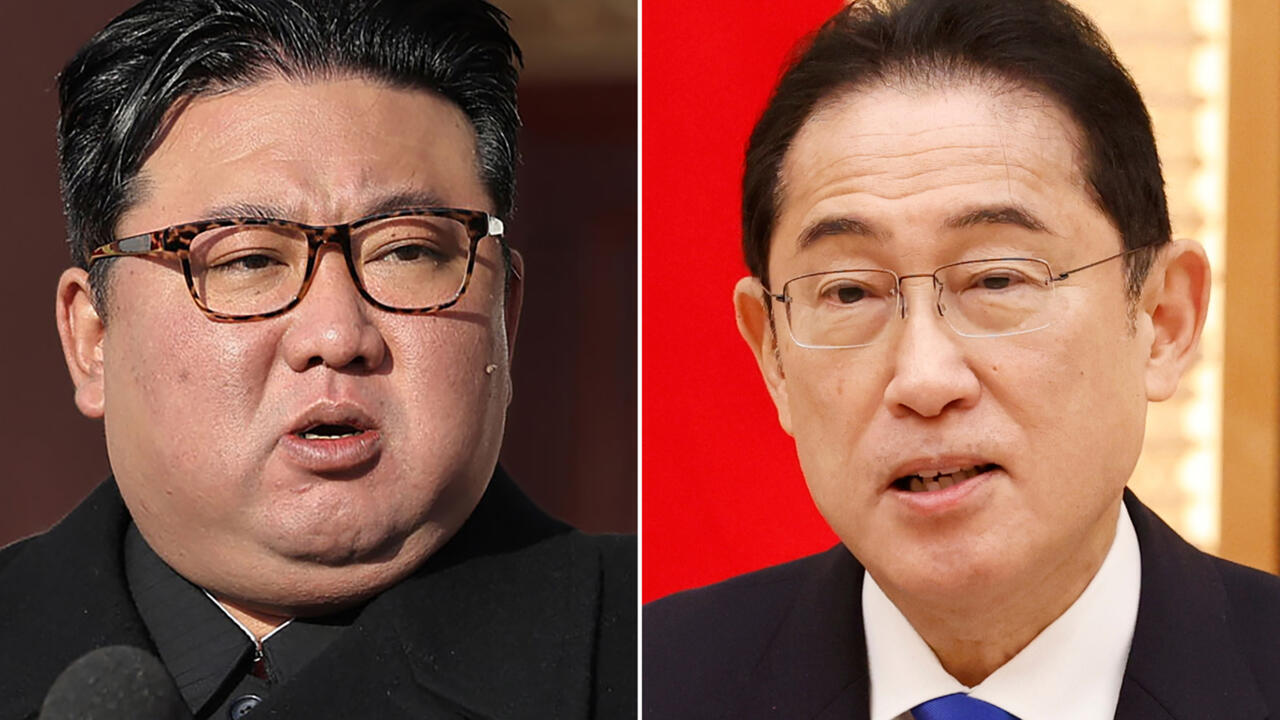"Mr. Kishida recently expressed his wish to meet with the chairman of the State Affairs Commission of the Democratic People's Republic of Korea (DPRK) as soon as possible," Kim Yo Jong said in a statement released by the official news agency KCNA.
The Japanese Prime Minister, who clarified that he was not aware of this press release, declared before Parliament that it is "important to have discussions at the summit with Pyongyang to resolve disputes (...) “That is why we have undertaken various approaches with North Korea at this level, directly under my control, as I have said in the past.”
Relations between the two countries are tense due to several problems, from the Japanese occupation of the Korean peninsula between 1910 and 1945 to the launch by Pyongyang of missiles above Japanese territory, including the kidnapping affair.
Pyongyang admitted in 2002 to the kidnapping of 13 Japanese in the 1970s and 1980s to train its spies in Japanese language and culture. A month after these confessions, five were allowed to return to Japan.
Kim Yo Jong, the sister of North Korean leader Kim Jong Un, on September 13, 2023 during a visit to Russia © Vladimir SMIRNOV / POOL/AFP/Archives
Despite this historic conflict, Mr. Kishida said he wanted to change the relationship between Tokyo and the reclusive country and expressed last year his wish to meet Kim Jong Un "without conditions", assuring during a speech to the United Nations that Japan was determined to resolve all disputes, including that of kidnappings.
In February, Kim Yo Jong, one of the regime's most outspoken figures, suggested that it was possible that the Japanese prime minister would be invited to visit North Korea.
It is "Japan's political decision that matters most to open a new era in relations between North Korea and Japan", she warned on Monday, calling on Tokyo not to "interfere with the exercise of our sovereign rights.
Deep wound
The kidnappings remain a deep wound in Japan and questions persist: Tokyo has at least 17 kidnapped and suspects dozens of other disappearances of being the work of North Korean services.
Analysts say the issue could hamper progress toward a Kim-Kishida summit.
Japanese Prime Minister Junichiro Koizumi (right) meets with North Korean leader Kim Jong Il, Kim Jong Un's father, on May 22, 2004 in Pyongyang © JIJI PRESS / JIJI PRESS/AFP
However, it is possible that Pyongyang's press release is an attempt to define the terms of a possible future meeting, Hong Min, a specialist at the Korea Institute for National Unification in Seoul, told AFP.
“It seems that the North thinks that there is no point in making contact with the Japanese without first checking which demands of each might ultimately lead to nothing, if those demands are too different to be reconciled,” he elaborated.
“This is Pyongyang’s way of seeing how serious Japan is about holding this meeting.”
However, Mr. Kishida "must know that he cannot meet our leader just because he wants to," said Kim Yo Jong.
"If Japan sincerely wants to improve relations and become a close neighbor to help ensure peace and stability in the region, it must have the political courage to make strategic choices consistent with its national interests," she said. added.
Former Japanese Prime Minister Junichiro Koizumi (2001-2006) went to Pyongyang in 2002 for a historic visit and a meeting with Kim Jong Un's father, Kim Jong Il. He then laid the foundations for a normalization of relations with the promise of economic assistance.
The summit allowed a second visit by Mr. Koizumi but diplomatic ties were quickly severed, Tokyo doubting Pyongyang's good faith on the subject of the kidnappings.
The France 24 summary of the week
invites you to look back at the news that marked the week
I subscribe
Take international news everywhere with you! Download the France 24 application

